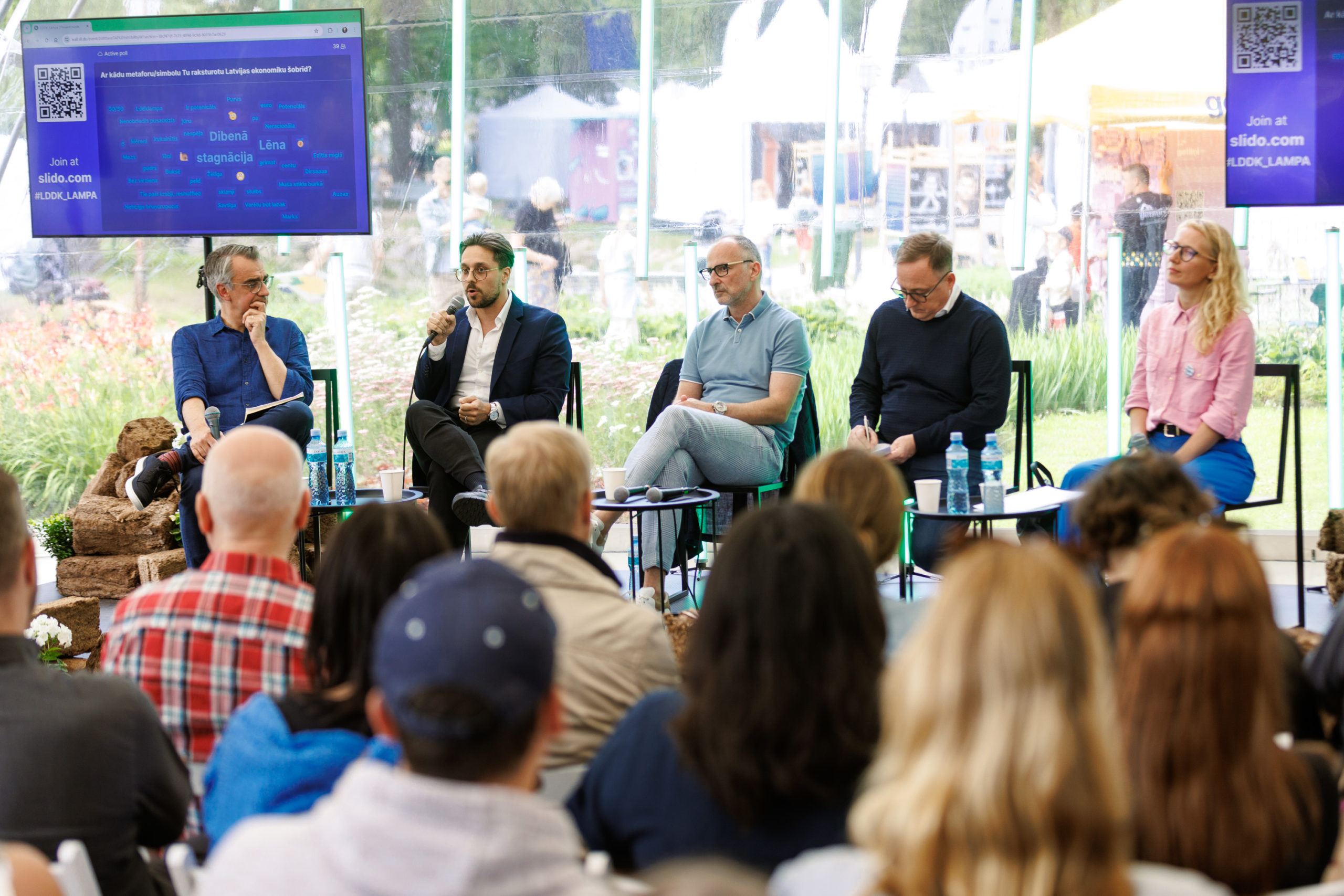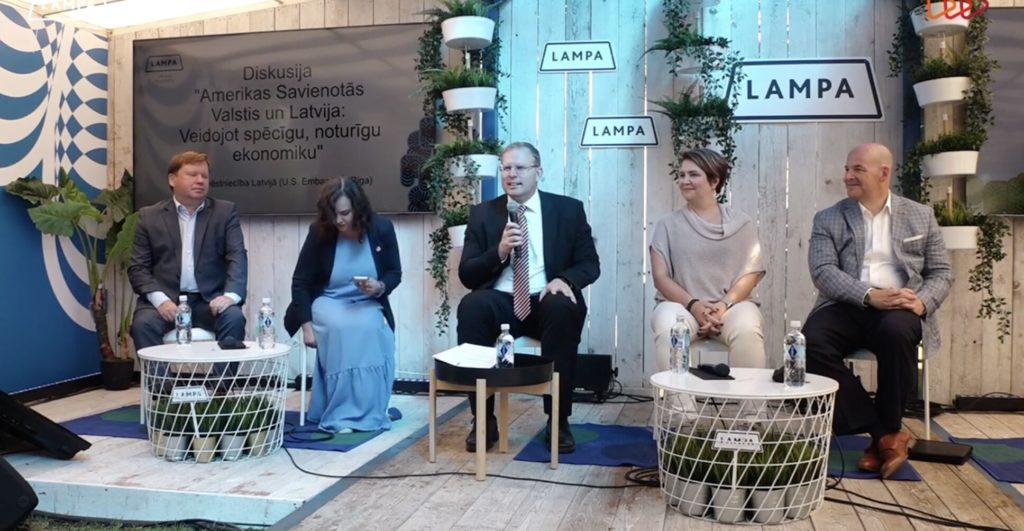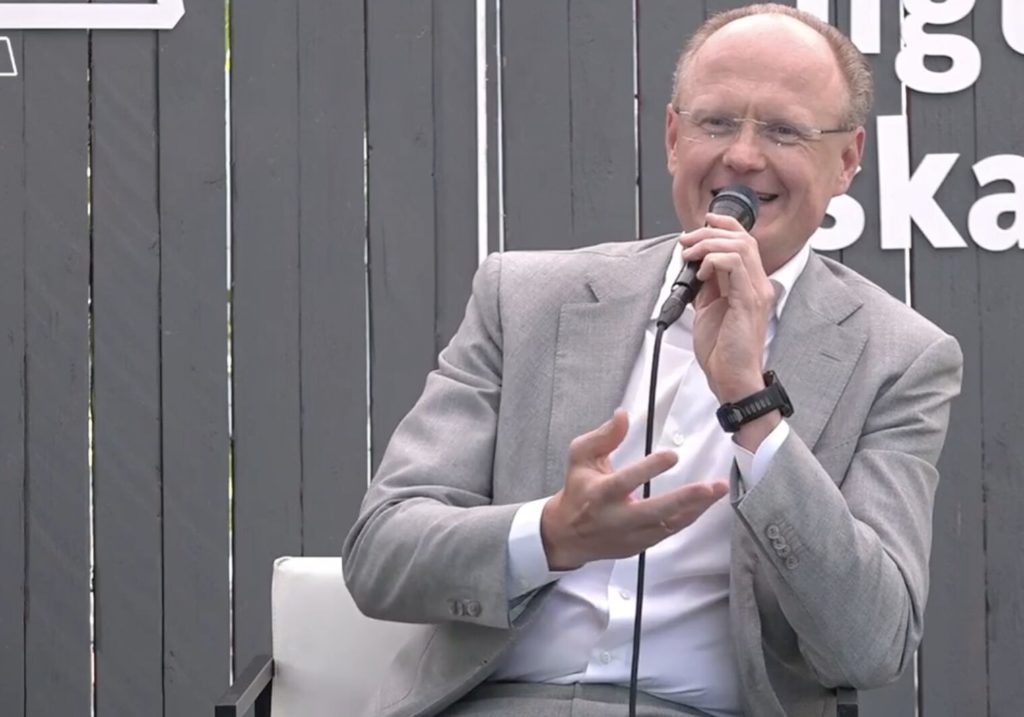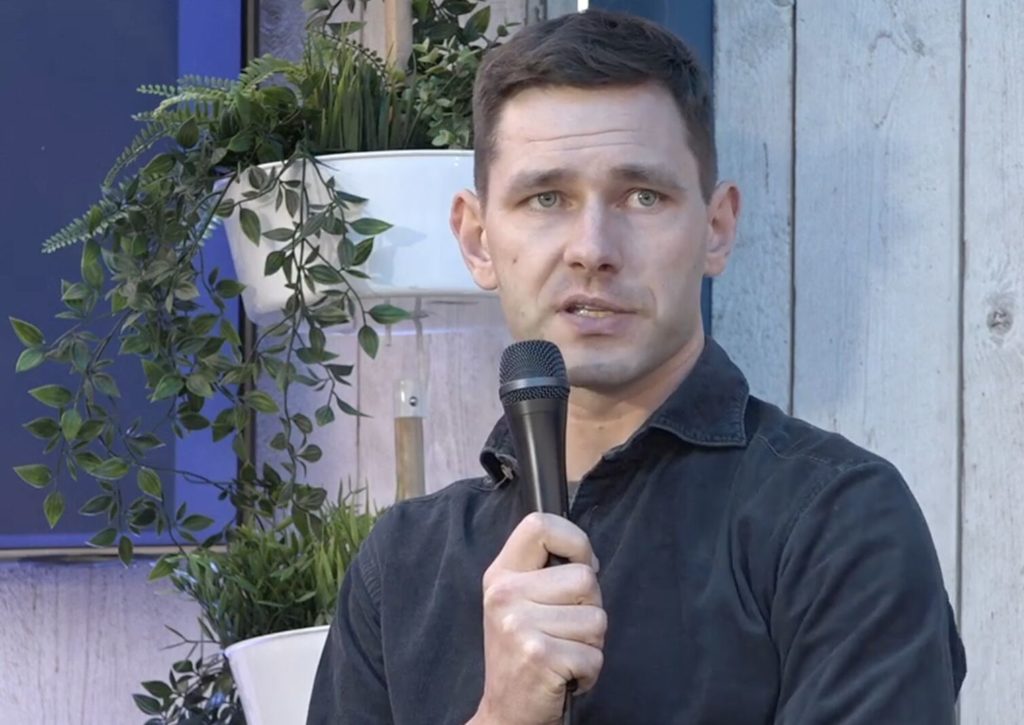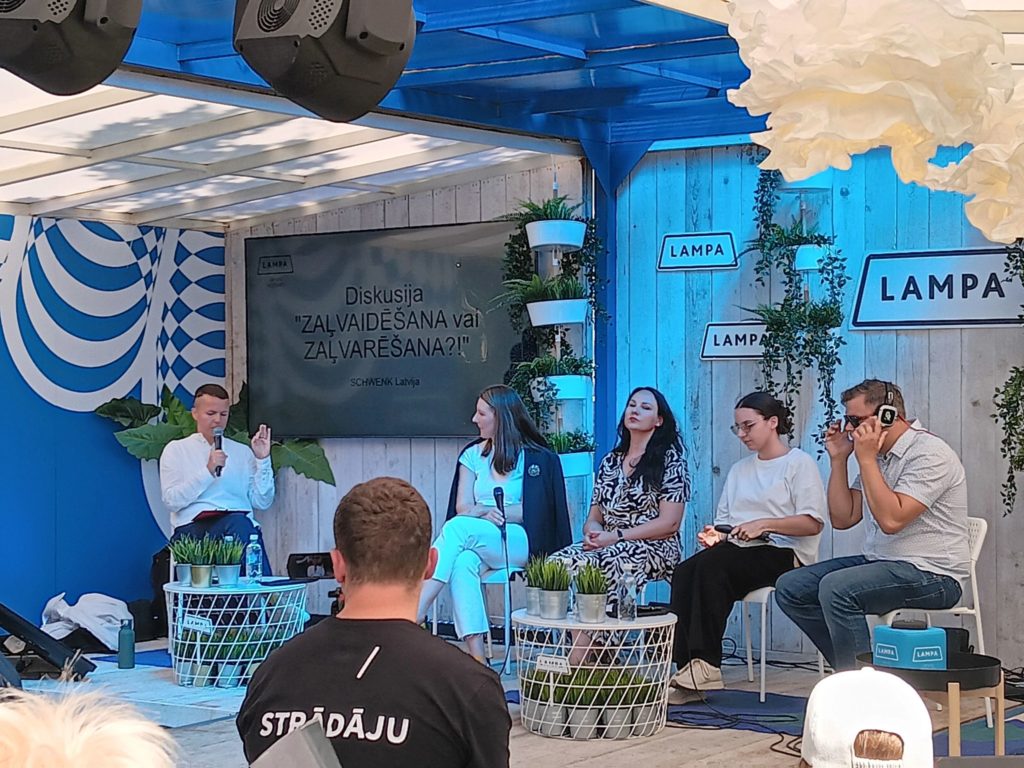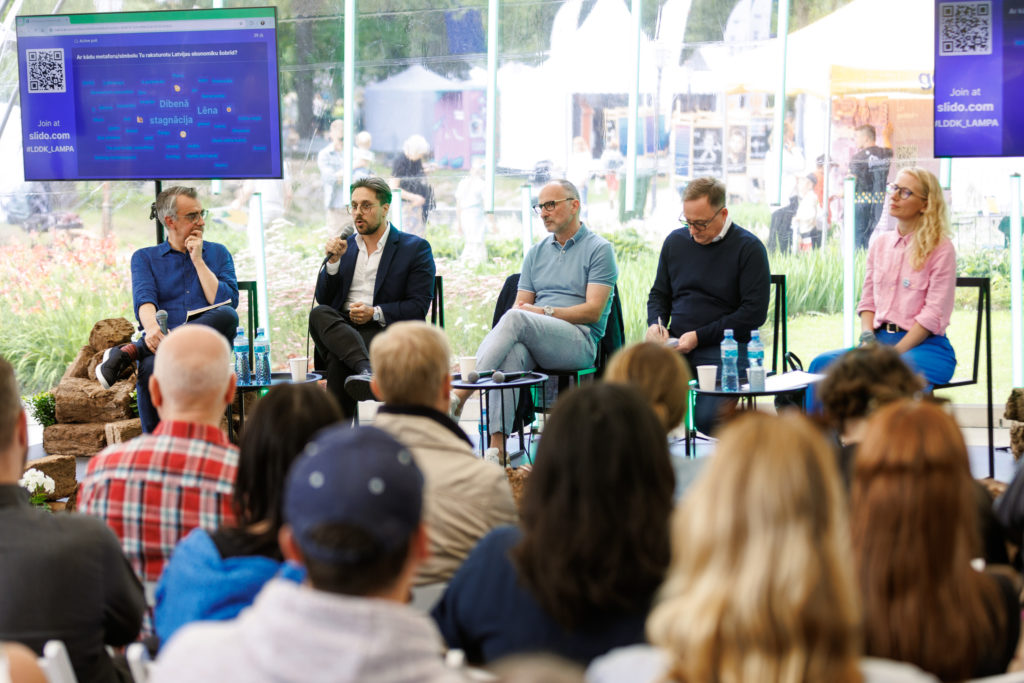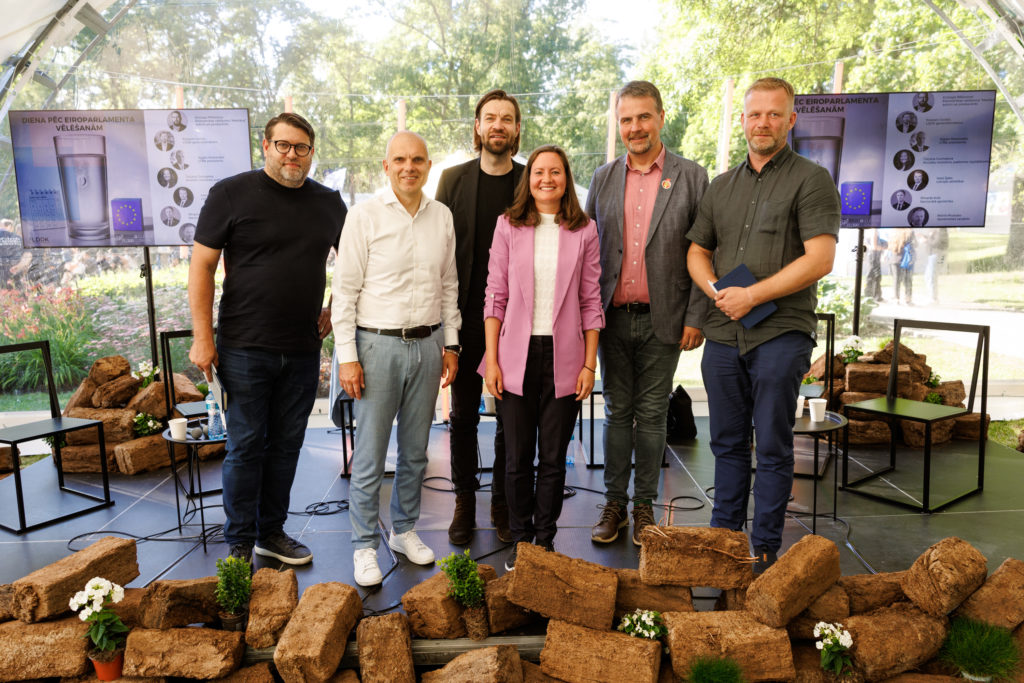On the 5th and 6th of July 2024, FICIL participated in the LAMPA Festival! Panel discussions took place in Cesis for the tenth time, gathering more than 25,000 people in 365 discussions and 62 venues in two days. Participants from the FICIL side included:
– Zlata Elksniņa-Zaščirinska (PwC Latvija), the Chairperson of the Board, joined the discussion on “USA and Latvia: Building a Strong, Sustainable Economy.”
– Māris Vainovskis (Eversheds Sutherland Bitāns), a Board Member and the Leader of the Investment Protection Work Group, who participated in the panel discussion “From Words to Action – Sustainable Financing for Entrepreneurs!”
– Edvīns Elferts (KPMG Latvia), Data & Digitalisation Work Group Leader, shared expertise on the topic of “Artificial Intelligence – A Helper or a Foe.”
– Evita Gosa (SCHWENK Latvija), the Leader of the Shadow Economy Combatting Work Group, moderated the discussion “GreenComplaining or GreenWinning,” and joined the discussion on “Equality is the Soul of Liberty; There is, in Fact, No Liberty Without It” (Frances Wright).
– Roberts Alhimionoks, FICIL Policy Expert, addressed the question of “Latvian Economy: Competing with Itself or with Neighbouring Countries?”
– Tatjana Guzņajeva, the Executive Director of FICIL, shared insights on “The Day After the European Parliament Elections”.
Zlata Elksniņa-Zaščirinska (PwC Latvija) emphasized the critical role of foreign investment in the economic landscape of Latvia, highlighting that, at present, foreign investors contribute 47% of the country’s total tax revenue. Given challenges in attracting new foreign investors to the country, more attention should be paid to collaboration with the current foreign investors in Latvia. She also argued that the transatlantic collaboration has a great value for the EU and for Latvia, as these relationships strengthen the ability to successfully address social and environmental issues. Lastly, Zlata underlined that the country should invest in the talent development and include the entire population of Latvia in this process. In view of the social, economic and geopolitical challenges the government should be agile to adapt to the new realities.
Full discussion available here.
Māris Vainovskis (Eversheds Sutherland Bitāns) participated in the discussion and outlined conditions under which businesses can obtain funding for sustainability and indicated that companies are already impacted by the green policy measures that Europe and the rest of the world have embraced. Māris stated that entrepreneurs and the Latvian society generally are becoming more conscious of the importance of green transition. Business and sustainability have a profoundly connected relationship, given the development of innovative and sustainable products, participation in the public procurement of “green” projects, and added value for the society. Thus, banks, entrepreneurs and the public sector should work together to drive the sustainability agenda.
More information about this discussion can be found here.
During the discussion “Artificial Intelligence – A Helper or a Foe” the panelists provided practical examples of risks and opportunities in using artificial intelligence technologies at workplaces. Edvīns Elferts (KPMG Latvia) noted that technologies are rapidly developing, many companies are experimenting with them, learning about their applications, providing training to employees, encouraging them to test technological capabilities. However, he stressed that we need to learn how to use them effectively and efficiently. Edvīns argued that if we develop AI, it will change many services, improve productivity and allow people to engage less in routine activities. At the end of the event, the audience was asked to participate in a poll on the use of AI in personnel selection processes. The results reflected a positive shift in willingness to try the technology.
The full discussion is available here.
The discussion “GreenComplaining or GreenWinning”, moderated by Evita Gosa (SCHWENK Latvija), presented a unique opportunity to delve into the implementation of sustainability strategies within various businesses. In addition, the discussion touched on the topics of reconstruction of old buildings, importance of nature resources for entrepreneurs in Latvia, sustainable innovation at state-owned companies, and on support instruments that would stimulate a green transition. In view of panelists, the current approach of Latvia towards realising its environmental objectives has not been successful. This has been attributed to a deficiency in commitment and leadership, resistance to innovation, and a reluctance to invest in necessary changes. For inspiration, the panelists referred to some good practices in Lithuania in relation to renewable energy, sustainable buildings and carbon capture.
More information can be found here.
In addition, Evita Gosa participated in a discussion “Equality is the Soul of Liberty; There is, in Fact, No Liberty Without It” (Frances Wright). It focused on the importance of equal rights for all population groups and the ability to express your individuality. It was noted that a positive change in the world has never been possible without people who do not give up in hardships and who stand for humanity.
More information can be found here.
The panel discussion “Latvian Economy: Competing with Itself or with Neighboring Countries?”, organised in collaboration with Latvijas Banka and LaSER, attracted around 90 participants. During the discussion, FICIL policy expert, Roberts Alhimionoks, underscored the fact that Riga does not feature among the top 100 cities in terms of startup activity, despite that both Tallinn and Vilnius do. In addition, the volume of foreign direct investments in Latvia pales in comparison to its neighbouring countries. The primary reasons for this are low productivity levels, poor investments in education, science, and innovation, and ineffective re-emegration policies and approaches. However, Roberts stated that Latvia holds considerable potential, therefore there is room for optimism.
More information can be found here.
Finally, the post-election debate “The Day After the European Parliament Elections” presented an opportunity to hear the negotiations between the employers’ organizations and the newly elected MEPs. Tatjana Guzņajeva, the Executive Director of FICIL, provided a comprehensive overview of the strategic priorities of the foreign investors. She highlighted the adverse effects of geopolitics on our region’s investment climate, calling for enhanced EU support, utilisation of all available EU instruments, and stronger collaboration between the public and private sector stakeholders. In addition, Tatjana pointed to the challenges related to human capital and skill development, urged to stimulate digitalisation and modernisation of the public sector, support the green transition and the fight against the shadow economy.
More information about this discussion can be found here.


